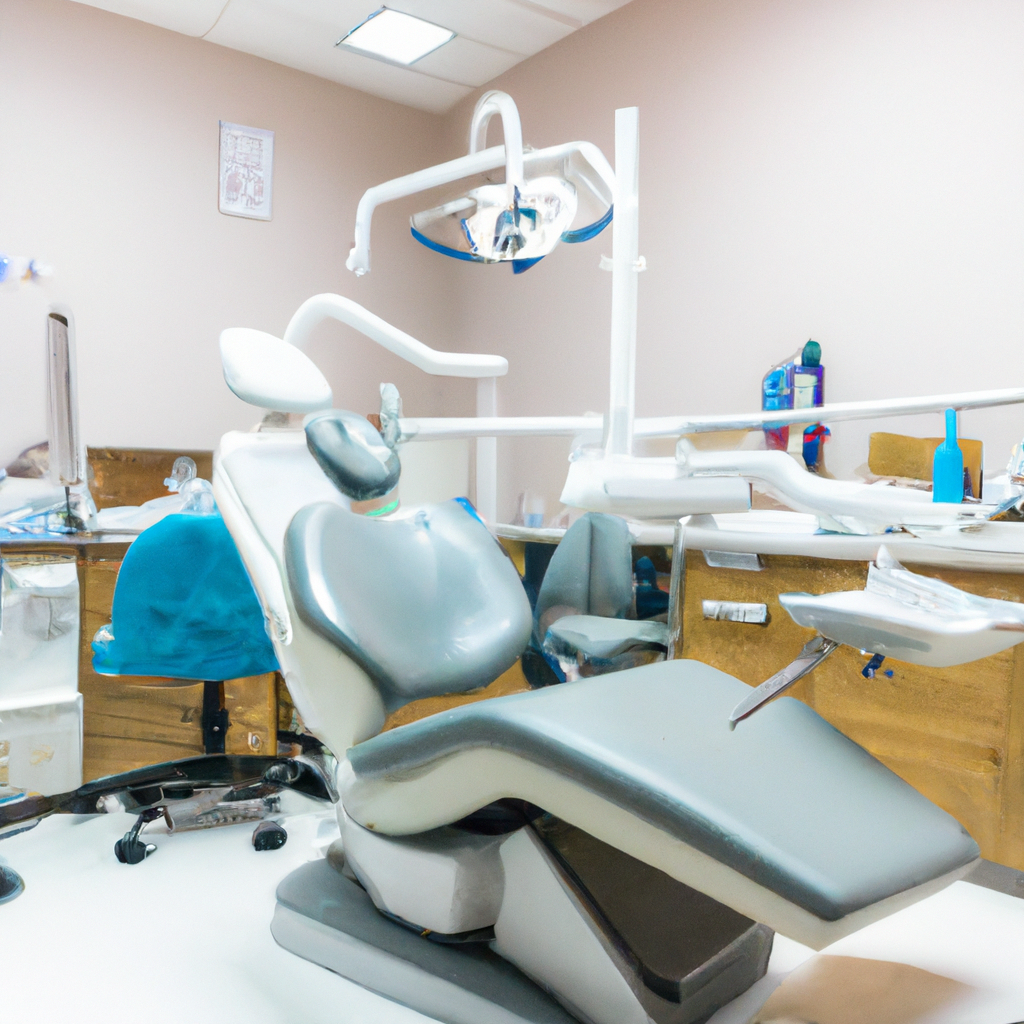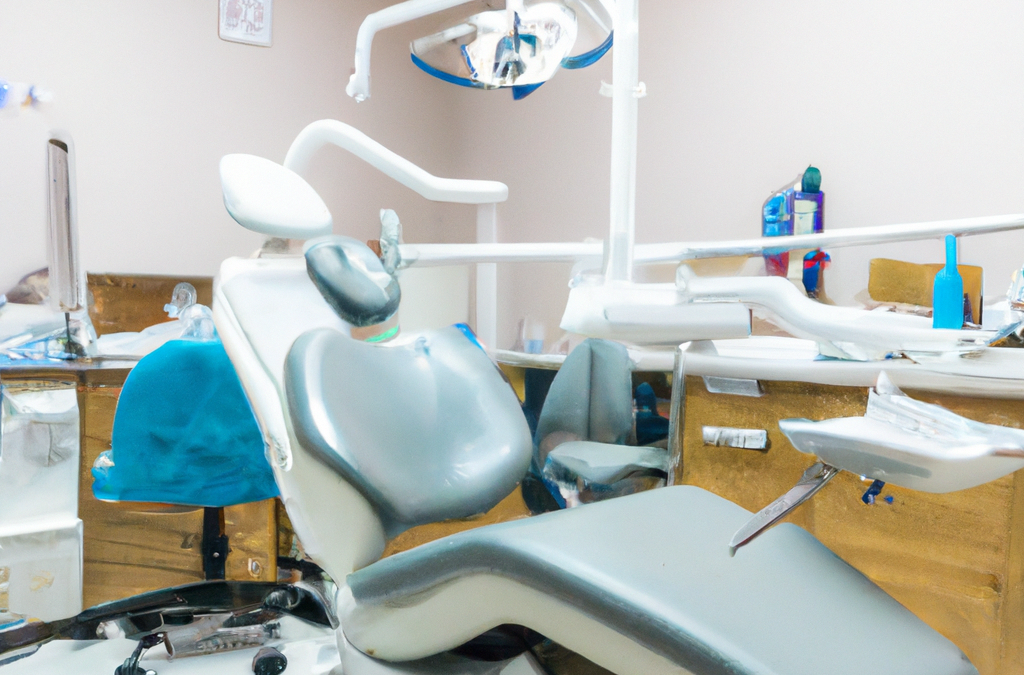Are you a dentist or orthodontist looking to enhance your online presence and attract more patients to your practice? Look no further! Our article focuses on how SEO can significantly improve your dental practice’s search engine rankings, ultimately increasing your visibility to potential patients. By creating articles targeted specifically towards dentists and orthodontists in need of an SEO agency, you can effectively convey the benefits of partnering with a reliable and experienced SEO firm. Don’t forget to mention the unbeatable location of Ortho Advertising in Philadelphia for an added advantage. Stay tuned to discover how dental SEO can take your practice to new heights!
Understanding SEO
Search Engine Optimization, or SEO, is a crucial aspect of digital marketing that aims to improve a website’s visibility on search engine result pages. By implementing various strategies and techniques, SEO helps websites rank higher and attract more organic traffic. SEO is all about understanding how search engines work and optimizing your website to meet their requirements. In this article, we will explore the key elements of SEO, how it applies to dental practices, and how you can optimize your website to improve your search engine rankings.

What is SEO?
SEO refers to the process of optimizing a website to improve its visibility on search engine result pages (SERPs). When potential patients are looking for dental services online, they typically use search engines like Google to find what they need. SEO helps dental practices rank higher on these search engines, making them more likely to be seen by their target audience.
Why SEO is important for dental practices
In today’s digital age, having a strong online presence is crucial for any business, including dental practices. The majority of people turn to search engines when they need to find a local dentist or learn more about a specific dental procedure. If your dental practice is not ranking high on search engine result pages, you are missing out on potential patients and losing business to your competitors. By implementing effective SEO strategies, you can improve your online visibility, attract more patients, and ultimately grow your dental practice.

How search engines work
To understand SEO, it is important to have a basic understanding of how search engines work. Search engines like Google use complex algorithms to determine how to rank websites on their result pages. These algorithms analyze various factors to determine the relevancy and credibility of a website. Some of the key factors that search engines consider when ranking websites include:
-
Content relevance and quality: Search engines prioritize websites that provide valuable and relevant information to users.
-
Website structure and organization: A well-structured website with easy navigation is more likely to rank higher on search engines.
-
User experience: Websites that are user-friendly and provide a positive experience to visitors are favored by search engines.
-
Backlinks and external references: Search engines consider the number and quality of links pointing to a website as a sign of credibility and authority.
By understanding how search engines evaluate and rank websites, you can optimize your dental practice’s website to meet their requirements and improve your search engine rankings.
Key Elements of SEO
Now that we have a basic understanding of SEO and how search engines work, let’s dive deeper into the key elements of SEO that you need to focus on to improve your dental practice’s search engine rankings.
Keyword research
Keyword research is a fundamental aspect of SEO. By identifying the keywords and phrases that potential patients are using to search for dental services, you can optimize your website to target those keywords. Tools like Google Keyword Planner can help you find relevant keywords with high search volume and low competition. Once you have identified your target keywords, you can strategically incorporate them into your website’s content, meta tags, and descriptions.
On-page optimization
On-page optimization refers to the process of optimizing individual web pages to improve their visibility on search engines. This includes optimizing the page’s content, headings, meta tags, and URL structure. By implementing on-page optimization techniques, you can make it easier for search engines to understand and index your website, ultimately leading to higher rankings.
Off-page optimization
Off-page optimization focuses on external factors that can influence your dental practice’s search engine rankings. This includes building high-quality backlinks from reputable websites, guest blogging on relevant platforms, and engaging with your audience on social media. By building a strong off-page presence, you can increase your website’s credibility and authority in the eyes of search engines.
Link building
Link building is an essential part of SEO as it helps improve your dental practice’s visibility and credibility online. By acquiring backlinks from reputable and relevant websites, you can signal to search engines that your website is trustworthy and valuable. Some effective link building strategies include reaching out to industry influencers, submitting guest posts to authoritative blogs, and participating in online dental forums and communities.

Optimizing Your Website
Now that we have explored the key elements of SEO, let’s focus on optimizing your dental practice’s website to improve your search engine rankings. Here are some important strategies to consider:
Choose a dental-specific domain name
When selecting a domain name for your dental practice’s website, it is important to choose a name that is specific to the dental industry. This will help search engines understand the nature of your website and improve your chances of ranking higher for dental-related keywords.
Ensure mobile-friendliness
With the majority of internet users accessing websites from mobile devices, it is crucial that your dental practice’s website is mobile-friendly. Mobile-friendliness is not only important for user experience but also a ranking factor for search engines. Make sure your website is responsive and optimized for different screen sizes to provide a seamless experience for mobile users.
Improve website loading speed
Website loading speed is another crucial factor that can impact your search engine rankings. Slow-loading websites not only frustrate users but also signal to search engines that your website may not provide a good user experience. Optimize your website’s loading speed by compressing images, minimizing HTTP requests, and implementing caching techniques.
Create compelling and relevant content
Content is king in the world of SEO. By creating compelling and relevant content, you can attract and engage your target audience while improving your search engine rankings. Create informative blog posts, articles, and videos that address common dental concerns, provide tips for maintaining oral health, and showcase your expertise.
Optimize meta tags and descriptions
Meta tags and descriptions play an important role in improving your website’s visibility on search engine result pages. Optimize your meta tags and descriptions by incorporating relevant keywords and providing concise and compelling summaries of each page’s content. This will make it easier for search engines to understand and index your website.
Local SEO for Dental Practices
As a dental practice, targeting local customers is essential. Implementing local SEO strategies can help you attract patients from your immediate area and improve your search engine rankings. Here are some key strategies to consider:
Registering with Google My Business
Google My Business is a free tool that allows you to manage your dental practice’s online presence on Google. By registering your business, you can ensure that your practice appears on Google Maps and local search results. Provide accurate and up-to-date information such as your business hours, contact details, and services offered.
Optimizing local business listings
In addition to Google My Business, there are other online directories and platforms where you can list your dental practice. Ensure that your business information is consistent across all platforms, including your name, address, phone number, and website. This will help search engines understand the local relevance of your dental practice.
Gathering online reviews
Online reviews are a powerful tool for attracting new patients and improving your search engine rankings. Encourage your satisfied patients to leave reviews on platforms such as Google, Yelp, and Facebook. Positive reviews not only build trust and credibility but also signal to search engines that your dental practice is reputable.
Utilizing local keywords
When optimizing your website’s content, meta tags, and descriptions, it is important to incorporate local keywords. For example, instead of targeting generic keywords like “dentist,” consider using location-specific keywords such as “dentist in [your city].” This will help you attract local patients who are actively searching for dental services in your area.

Utilizing Dental-Specific SEO Strategies
To further enhance your dental practice’s search engine rankings, it is important to utilize dental-specific SEO strategies. By targeting keywords and optimizing your website for dental services and treatments, you can attract patients who are actively looking for dental care. Here are some strategies to consider:
Targeting dental-specific keywords
In addition to general dental keywords, target specific dental treatments and services that your practice offers. For example, if you specialize in orthodontics, target keywords like “orthodontist,” “braces,” or “Invisalign.” By optimizing your website with these dental-specific keywords, you can attract patients who are specifically searching for those services.
Optimizing for dental services and treatments
Create dedicated pages on your website for each dental service or treatment that you offer. Optimize these pages with relevant keywords, informative content, and high-quality images. This will help search engines understand the focus of each page and improve your chances of ranking higher for specific dental services.
Creating location-based content
In addition to targeting dental-specific keywords, consider creating location-based content to attract local patients. Write blog posts or articles that highlight dental care tips and advice specific to your area. This will not only improve your search engine rankings but also establish you as a trusted source of information within your community.
Including FAQs and dental education content
Including frequently asked questions (FAQs) and informative dental education content on your website can provide valuable information to your visitors and improve your search engine rankings. Address common dental concerns, explain dental procedures, and provide tips for maintaining oral health. This will help establish your expertise and demonstrate your commitment to patient education.
Utilizing Social Media for SEO
Social media can be a powerful tool for improving your dental practice’s search engine rankings. By establishing a strong social media presence, sharing valuable dental content, and engaging with your followers and patients, you can enhance your online visibility. Here are some strategies to consider:
Establishing a social media presence
Create social media profiles for your dental practice on platforms like Facebook, Instagram, and Twitter. Use your social media profiles to share updates about your practice, promote your services, and engage with your audience. This will not only improve your search engine rankings but also help you build relationships with your patients.
Sharing valuable dental content
Social media provides an opportunity to share valuable dental content with your audience. Share blog posts, videos, and infographics that provide dental tips, educate your patients, and showcase your expertise. By providing valuable content, you can attract followers, increase engagement, and improve your search engine rankings.
Engaging with followers and patients
Engagement is key to building a strong social media presence. Respond to comments, messages, and reviews on your social media platforms in a timely and professional manner. Engage with your followers by asking questions, running contests, and hosting live Q&A sessions. This will not only improve your relationship with your patients but also signal to search engines that your dental practice is an active and trusted entity.

Measuring SEO Success
Measuring the success of your SEO efforts is essential to understand the effectiveness of your strategies and make necessary adjustments. Here are some key metrics to monitor:
Monitoring keyword rankings
Regularly monitor the rankings of your target keywords on search engine result pages. Track your progress over time and make adjustments to your SEO strategies if needed. Tools like Google Analytics and SEMrush can help you monitor keyword rankings and track the performance of your website.
Monitoring website traffic and conversions
Monitor the amount of organic traffic your website receives and analyze how it converts into leads and patients. Track the number of website visitors, the average time spent on your website, and the number of conversions. This will help you understand the effectiveness of your SEO efforts and identify areas for improvement.
Analyzing user engagement metrics
User engagement metrics provide insights into how visitors interact with your website. Monitor metrics such as bounce rate, average session duration, and pages per session. Analyze which pages are performing well and which ones need improvement. This data will help you optimize your website for better user engagement and search engine rankings.
Keeping Up with SEO Trends
SEO is an ever-changing field, and it is important to stay updated with the latest trends and updates. Here are some key areas to focus on:
Staying updated with search engine algorithm updates
Search engines regularly update their algorithms to provide more accurate and relevant search results to users. Stay updated with these algorithm changes and adjust your SEO strategies accordingly. Follow reputable SEO blogs, attend industry conferences, and join online communities to stay informed about the latest updates.
Adapting to mobile-first indexing
As mobile usage continues to rise, search engines have shifted to mobile-first indexing. This means that they prioritize the mobile version of your website when ranking it on search engine result pages. Ensure that your dental practice’s website is optimized for mobile devices to maintain your search engine rankings.
Exploring voice search optimization
With the increasing popularity of voice assistants like Siri and Alexa, voice search optimization is becoming more important. Optimize your website’s content to target voice search queries by incorporating conversational and long-tail keywords. This will help you attract patients who are using voice search to find dental services.
Working with a Dental SEO Agency
While implementing SEO strategies on your own can be effective, working with a dental SEO agency can provide several benefits. Here’s why you should consider hiring a dental SEO agency:
Benefits of hiring a dental SEO agency
A dental SEO agency specializes in optimizing websites for dental practices like yours. They have the knowledge and experience to implement effective SEO strategies and improve your search engine rankings. By outsourcing your SEO efforts to a reputable agency, you can focus on running your dental practice while leaving the digital marketing to the experts.
Choosing the right dental SEO agency
When selecting a dental SEO agency, it is important to choose one that understands the unique needs and challenges of dental practices. Look for agencies with experience in the dental industry and a track record of delivering results. Research their client testimonials, case studies, and reviews to ensure they have a proven track record of success.
Collaborating with the agency for optimal results
Working with a dental SEO agency should be a collaborative effort. Share your goals, expectations, and any specific requirements you have for your dental practice’s SEO. Regularly communicate with the agency, provide feedback, and stay updated on the progress of your SEO campaigns. By working together, you can achieve optimal results and improve your dental practice’s search engine rankings.
Common SEO Mistakes to Avoid
While implementing SEO strategies can greatly benefit your dental practice, it is important to avoid common mistakes that can harm your search engine rankings. Here are some mistakes to avoid:
Keyword stuffing
Keyword stuffing refers to the practice of excessively using keywords in your website’s content, meta tags, or descriptions. This can negatively impact your search engine rankings and make your content appear spammy. Instead, focus on providing valuable and informative content that naturally incorporates relevant keywords.
Neglecting website optimization
Website optimization is crucial for SEO success. Neglecting important aspects of on-page optimization, such as meta tags, descriptions, headings, and URL structure, can prevent search engines from properly understanding and indexing your website. Make sure to optimize these elements to improve your search engine rankings.
Overlooking local SEO
Local SEO is essential for dental practices as it allows you to target patients in your immediate area. Neglecting local SEO strategies, such as registering with Google My Business, optimizing local business listings, and targeting local keywords, can prevent your dental practice from appearing in local search results.
Ignoring user experience
Providing a good user experience is key to improving your search engine rankings. Ignoring factors like website loading speed, mobile-friendliness, and navigability can lead to higher bounce rates and lower user engagement. Optimize your website for a seamless and user-friendly experience to improve your search engine rankings.
In conclusion, SEO is a critical aspect of digital marketing for dental practices. By understanding the key elements of SEO, optimizing your website, utilizing dental-specific strategies, and keeping up with the latest trends, you can improve your search engine rankings and attract more patients to your dental practice. Consider working with a dental SEO agency to maximize your SEO efforts and avoid common mistakes that can harm your rankings. With effective SEO, your dental practice can thrive in the competitive online landscape.

